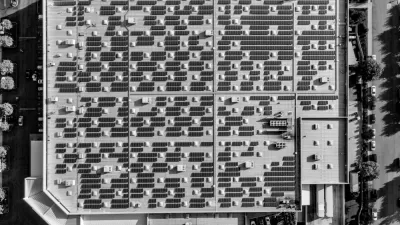Target announced recently that almost all of the stores it expects to open in 2016 and 2017 will be located in urban areas.
"Target is about to become more accessible to city dwellers," according to an article by Michael Addady. "The company has laid out its plans for upcoming store openings for the next couple of years, and most of them will be smaller locations set in urban areas."
More specifically, Target will open 11 new stores in 2016 and four in 2017, including three in Philadelphia, three in New York City, two in Los Angeles, and one in Chicago.
The urban focus of the company's expansion strategy differs greatly from its suburban origins. In another sign of the company's new normal, the days of Target granting special monikers to its urban stores (i.e., "CityTarget" and "TargetExpress") are over. All stores will simply be called Target. The company's website has more on its planned openings.
FULL STORY: Target Might Be Coming to Your Big City in 2016

Planetizen Federal Action Tracker
A weekly monitor of how Trump’s orders and actions are impacting planners and planning in America.

Maui's Vacation Rental Debate Turns Ugly
Verbal attacks, misinformation campaigns and fistfights plague a high-stakes debate to convert thousands of vacation rentals into long-term housing.

Cuomo Is the Candidate of Both NIMBYs and Developers. What Gives?
In the New York City mayoral race, odd bedfellows align to preserve the housing status quo.

Amtrak Rolls Out New Orleans to Alabama “Mardi Gras” Train
The new service will operate morning and evening departures between Mobile and New Orleans.

The Subversive Car-Free Guide to Trump's Great American Road Trip
Car-free ways to access Chicagoland’s best tourist attractions.

San Antonio and Austin are Fusing Into one Massive Megaregion
The region spanning the two central Texas cities is growing fast, posing challenges for local infrastructure and water supplies.
Urban Design for Planners 1: Software Tools
This six-course series explores essential urban design concepts using open source software and equips planners with the tools they need to participate fully in the urban design process.
Planning for Universal Design
Learn the tools for implementing Universal Design in planning regulations.
Heyer Gruel & Associates PA
JM Goldson LLC
Custer County Colorado
City of Camden Redevelopment Agency
City of Astoria
Transportation Research & Education Center (TREC) at Portland State University
Jefferson Parish Government
Camden Redevelopment Agency
City of Claremont




























